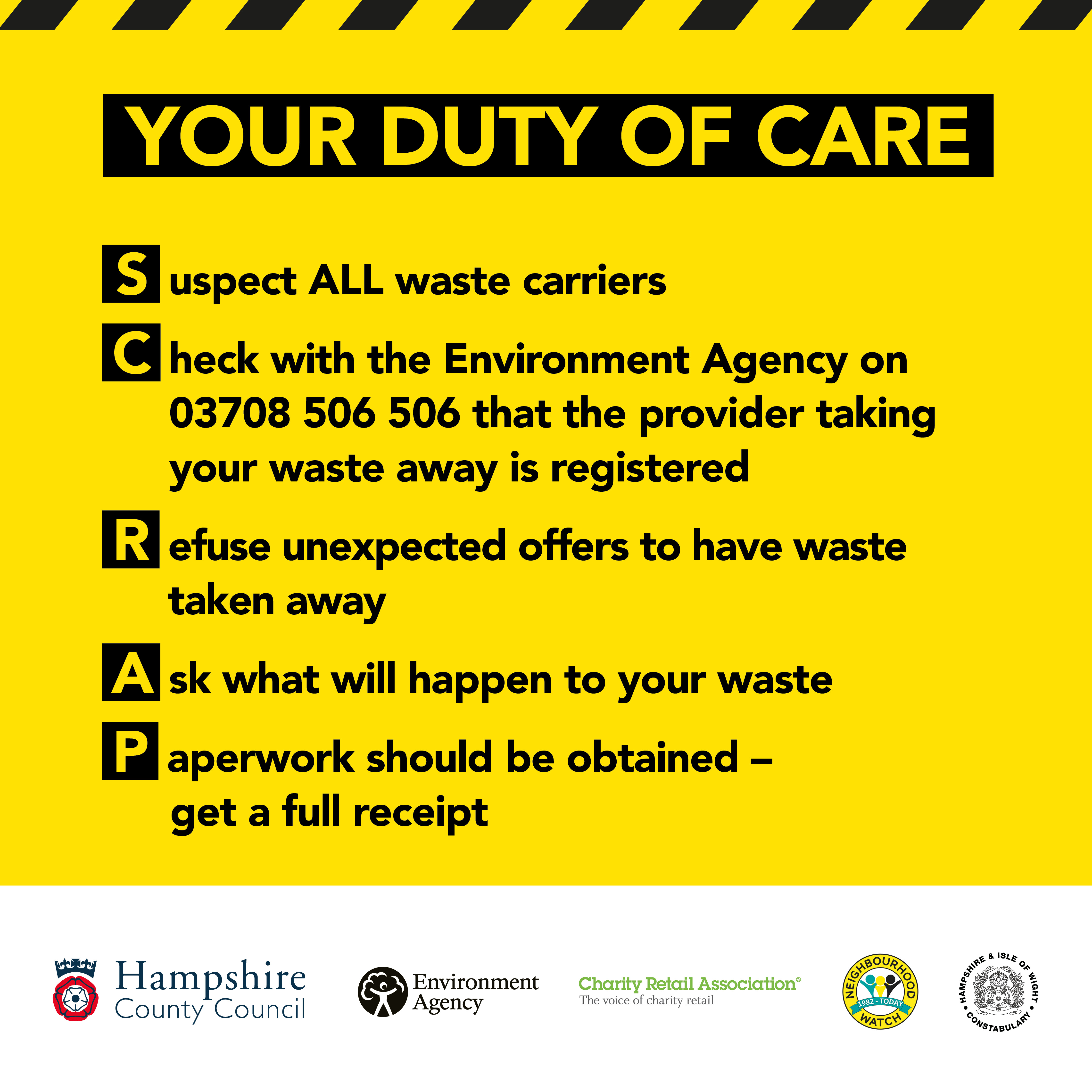Fly-tipping is the illegal dumping of waste onto or into land that is not licensed to receive it. The type and quantity of the waste involved can be wide-ranging in nature, including anything from a single black bag of household waste through to trailer-loads of commercial or construction materials.
- In 2021-22, there were 1.09 million fly-tipping incidents reported in England.
- Pavements and roadways are consistently the most common location to be targeted by fly-tippers, accounting for over two fifths (43%) of all incidents in 2021-22.
- The most common size category for fly-tipping incidents in 2021-22 was a ‘small van load’ (32%), followed by the equivalent of a ‘car boot or less’ (26%).
- Most fly-tipped incidents involved household waste which, in 2021-22, accounted for 61% of all incidents.
*Source: DEFRA
Fly-tipping is both a criminal offense and one of the most common forms of antisocial behaviour. It blights the countryside, contaminating the land and water, and is a threat to livestock and local wildlife. It also endangers public health and can attract other forms of environmental crime – including dog fouling, graffiti, littering and arson. The associated costs also deplete Local Authority budgets, and those of other responsible bodies, draining resources which could be better utilised elsewhere.
Your duty of care
It is your duty to ensure the waste that your household or business produces is disposed of correctly. If your waste is fly-tipped, by you or someone else acting on your behalf, then you could face a £1000 fixed penalty notice or an unlimited fine. Local Authorities and the Environment Agency also have powers to stop, search and seize vehicles that they suspect of being used in fly-tipping.
Advice for households
You must make sure that your waste and unwanted items are always taken to an appropriate location. Remember, all of these are incidents of fly-tipping, and may result in a fixed penalty notice...
- Leaving items outside closed recycling centres and charity shops
- Leaving items beside street bins and recycling banks
- on the floor of communal bin storage areas
Here's what you can do...
- Use your kerbside bin collection. Visit your district or borough council’s website to find about your local bin collections and what you can put in your bins.
- Use neighbourhood recycling banks or household waste recycling centres. Find out when your nearest recycling centre is open, what you can take there, and how to get a permit to bring a van or trailer.
- Use your local council's bulky waste collection service. Your district or borough council can collect bulky items directly from your house – visit their website for details.
- Sell or donate your unwanted items. Use social media groups or websites like eBay, Gumtree and Freecycle. Only donate to charity shops when they’re open.
If you choose to give your waste to someone else to dispose of on your behalf, make sure that you’re protected by following the S.C.R.A.P code.

If you find waste dumped on your land, follow the advice on the Countryside Alliance website.
Reporting fly-tipping
If you witness an incident in progress, call the police on 999/101.Do not confront fly-tippers, as they are engaged in a criminal activity and may respond unpredictably.
Regardless of whether fly-tipping is found on public or private land, you should always report it to the relevant local authority – it may be that the culprit can be found or linked to other incidents. You can report fly-tipping directly through your Local Authority website. Alternatively, you can also report the incident on-the-go through apps such as ClearWaste or websites such as FixMyStreet.
Reporting all occurrences of fly-tipping, including those on private land, helps to expose the true extent of the problem, reveals hotspots areas, drives investment in vital counter-measures and increases overall levels of community awareness.
